The battle for the soul of Chichester
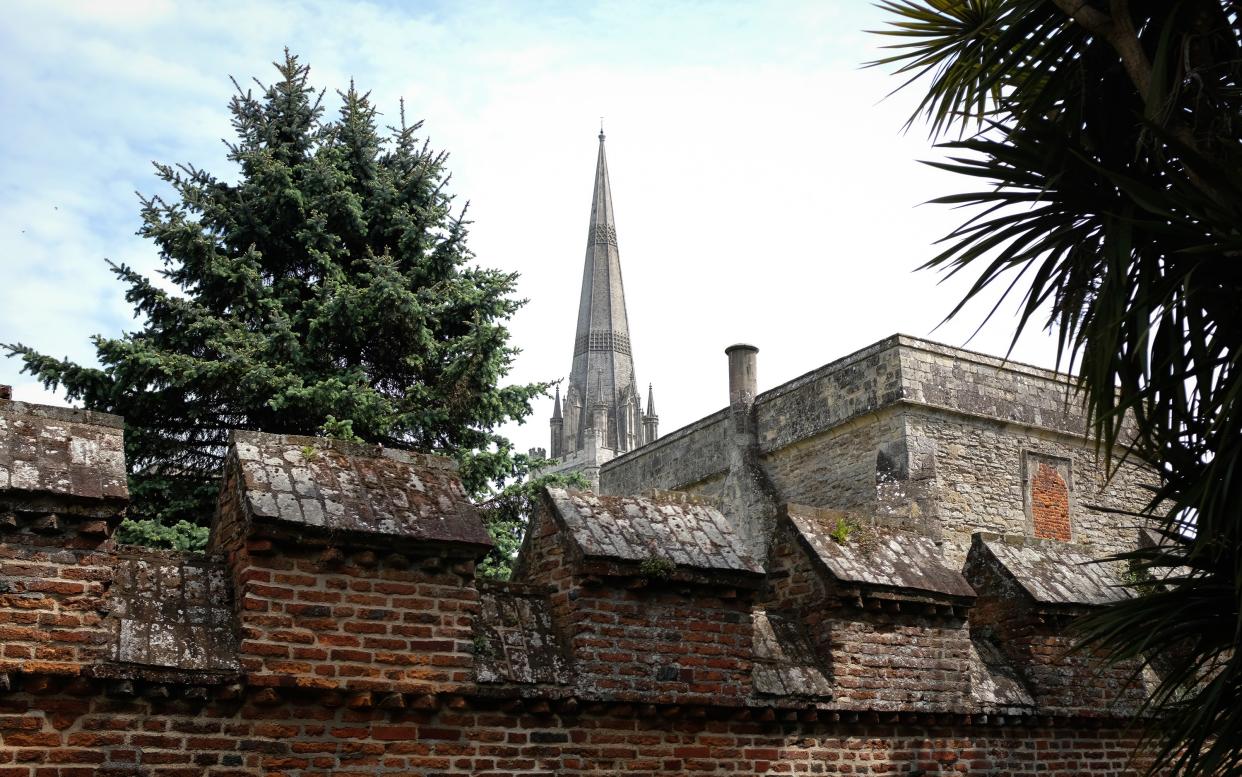
A walled and gated Roman city is comfortingly quantifiable to the type of daytripper keen to leave no (corner)stone unturned. And indeed Chichester, with its Never Eat Shredded Wheat gridiron plan stamped on the city centre like a hot cross bun, has much to commend it to those afraid of getting lost.
Yet as I head from the railway station up Southgate, past Zizzi, Prezzo, Pizza Express and Côte, and contemplate a turn on to East Street, I feel dizzied by the parade of big-brand names.
This cathedral city is only 70 miles from London and a magnet for theatregoers at this time of year, but surveying their options for pre-show fare is dispiriting.
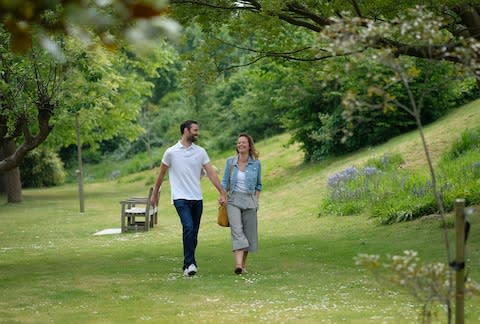
In a city with such solid historical foundations, where the Romans based their AD 43 invasion of Britannia, and Cicestrians still talk fondly of routing the Vikings in Kingley Vale, the homogenising hand of high-street capitalism has been allowed to walk in without contest, and conquer all.
For diehard shoppers, though, I reckon this could be paradise. A tantalising mixture of high and low, like an upmarket, al fresco Westfield. I reckon you could find anything you want in Chichester: just probably not something unique.
Earlier this year, a flesh-eating piranha was found dead in the sewers, but locals are less concerned about the prosaic dispatch of a carnivorous pet than they are about the insatiable hunger of local landowners who have driven up business rates so that only the same old chains can afford shop rents.
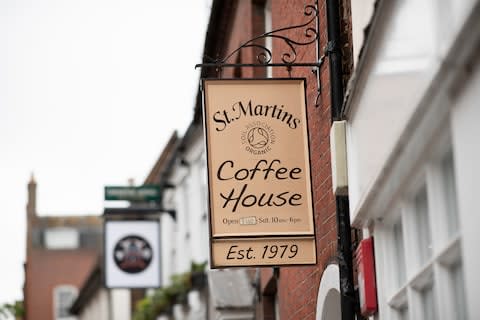
The locals’ refrain goes something like: “There are 82 cafés in the centre of Chichester: we’ve got a Starbucks, Pret, Caffè Nero…”
This is not a boast. How could a city that prides itself on a cultural history, famous for its groundbreaking theatre, its arts festivals, its links to Olivier and Larkin, sell out quite so blandly?
Where are the independent retailers? Who is in part to blame? The same response comes from all in a stage whisper: the church.
Along with a few old families, the Diocese of Chichester is the main landowner in the city. And it has presided over its assets with maximum economic nous but, perhaps, minimal foresight.
Daytripper | More from our series on UK days out
Chichester, regularly voted among the top places in the UK to live, with some of Britain’s most expensive homes outside the capital, in proximity to the fun and thrills of Goodwood racecourse and the delights of nearby Chichester Harbour, isn’t immune to the catastrophic consequences of an overstretched consortium. This week, House of Fraser fell like a mighty column across the forum. Surely more are set to tumble. While all as yet glitters still, Chichester has one of the UK’s highest concentrations of chain shops.
Meanwhile, on the fringes, in the fascinating medieval and Georgian lanes fanning hither and thither from its rigid Roman centre, there are still a few independent cafés, record shops, crafters and bric-a-brac purveyors. The architecture is beautiful, as is the wisteria. The pulse is weak, but Chichester’s once mighty heart is quietly beating.
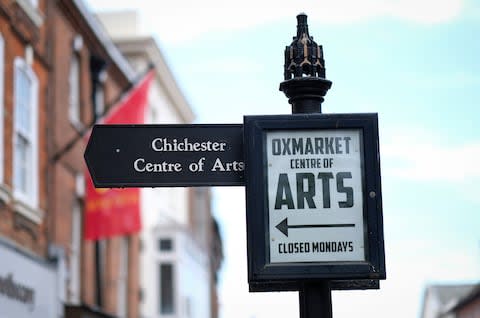
Seven good reasons to visit Chichester
The museum
Opened in 2012, The Novium takes its name from the Roman name for the city, Noviomagus Reginorum. It is built directly over the remains of Chichester’s Roman bath complex, which is displayed in the ground-floor gallery.
The shop
The Coln Gallery is one of the few independent retailers in the centre of Chichester, selling artist materials and giftables such as pens, notebooks and pottery. Owner Paul Fuller is a born-and-bred Cicestrian with a passion for the place and its history.

The cafe
The Soil-Association-certified St Martin’s Organic Coffee House opened in 1979. For the past 17 years, the chef has served up vegetarian-friendly, health-focused yet hearty lunches. The garden is a sun trap where you can while away the afternoon. Open 10am-6pm Tuesday to Saturday.
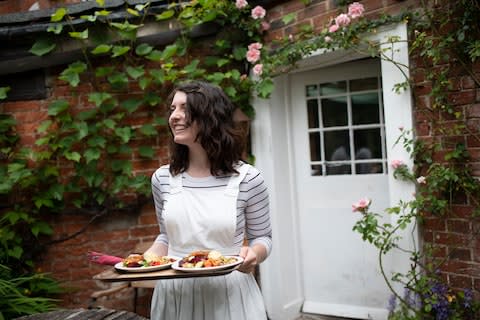
The pub
The Duke & Rye occupies a mid-Victorian Gothic Revival church opposite the cathedral, and the building was highly regarded by Pevsner. Now one of Britain’s most ornate pubs, it is worth popping in to for the vaulted ceiling.

The walk
It is 1,800 years since the walls and gates were first built around the Roman town of Noviomagus Reginorum. Today, they are the most intact circuit of Roman town defences in southern England. More than 80 per cent of the original structure survives.
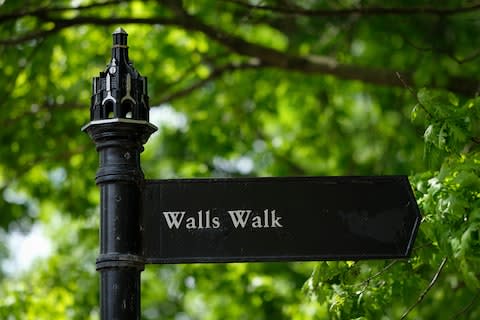
The gallery
Pallant House Gallery, winner of the 2007 museum of the year Gulbenkian Prize, has an airy, modern extension, and an exceptional collection of 20th-century British art, with works by artists including Walter Sickert, Lucian Freud, Graham Sutherland and Ben Nicholson, as well as changing exhibitions.
The theatre
The Chichester Festival Theatre opened in 1962 with Laurence Olivier as the inaugural artistic director. It was at Chichester that the first National Theatre company was formed. The festival season runs at the Grade II listed building from April to September and includes productions from classics to contemporary writing and musicals. Look out for outdoor promenade performances.

